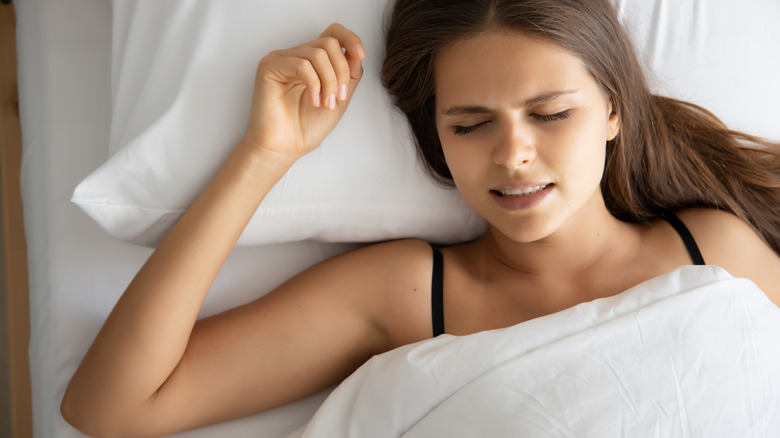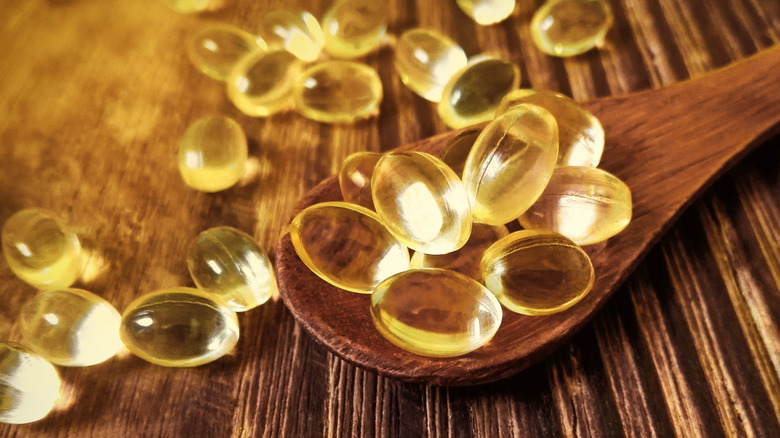The Vitamin You Need If You Grind Your Teeth
We all know that feeling of waking up with a sore neck and dull headache, feeling like you've barely slept. If this sounds like a typical morning for you, you may be grinding your teeth in your sleep.
Teeth grinding, also called bruxism, is a condition where you unconsciously clench your teeth, either while awake or asleep (via the Mayo Clinic). Symptoms of bruxism can include flattened or chipped teeth, tooth pain or sensitivity, tired jaw muscles, chewing on the inside of your cheeks, and headaches at the temples. People who suffer from sleep bruxism usually also suffer from other sleep disorders, like snoring or sleep apnea. If bruxism is severe enough, it can lead to jaw disorders, damaged teeth, and other issues.
According to a 2016 study published in Sleep, the condition is reported regularly by 8.6% of the general population and occasionally by 13.7%. This prevalence tends to decrease with age, however.
So why do we grind our teeth in the first place? One of the most considerable risk factors is stress (via Sleep Foundation). Both stress and anxiety provoke a common response of clenching the teeth (and according to the Washington Post, the COVID-19 pandemic may be exacerbating this). It's also been proven that you're up to 50% more likely to experience sleep bruxism if you have a close family member who also has it.
How can vitamins help?
In a 2021 study published in BMC Oral Health, sleep bruxism was linked to a vitamin D deficiency, as well as low consumption of calcium. Other sleep disorders are also associated with the condition. "There are so many sleep disorders — including sleep apnea, different types of insomnia, cramps in your feet at night — that are related to low levels of vitamin D," says Dr. Eric Berg, a chiropractor and health educator. "Vitamin D deficiency is also associated with anxiety, so if you're trying to sleep at night with a vitamin D deficiency, the anxiety alone can cause you to grind your teeth."
Taking a vitamin D supplement could be a good place to start. Dr. Berg recommends taking 10,000iu of vitamin D3 at dinnertime, accompanied by some cheese for the calcium, and see if you notice any improvements. According to the Sydney Centre for TMJ and Sleep Therapy, magnesium could also be helpful for alleviating the symptoms of bruxism, as it can help relax the muscles and reduce stress. Other approaches include mouth guards, dental correction, stress management, muscle relaxants, or other medications for anxiety or stress.
Grab that vitamin D, keep calm, and unclench that jaw.


